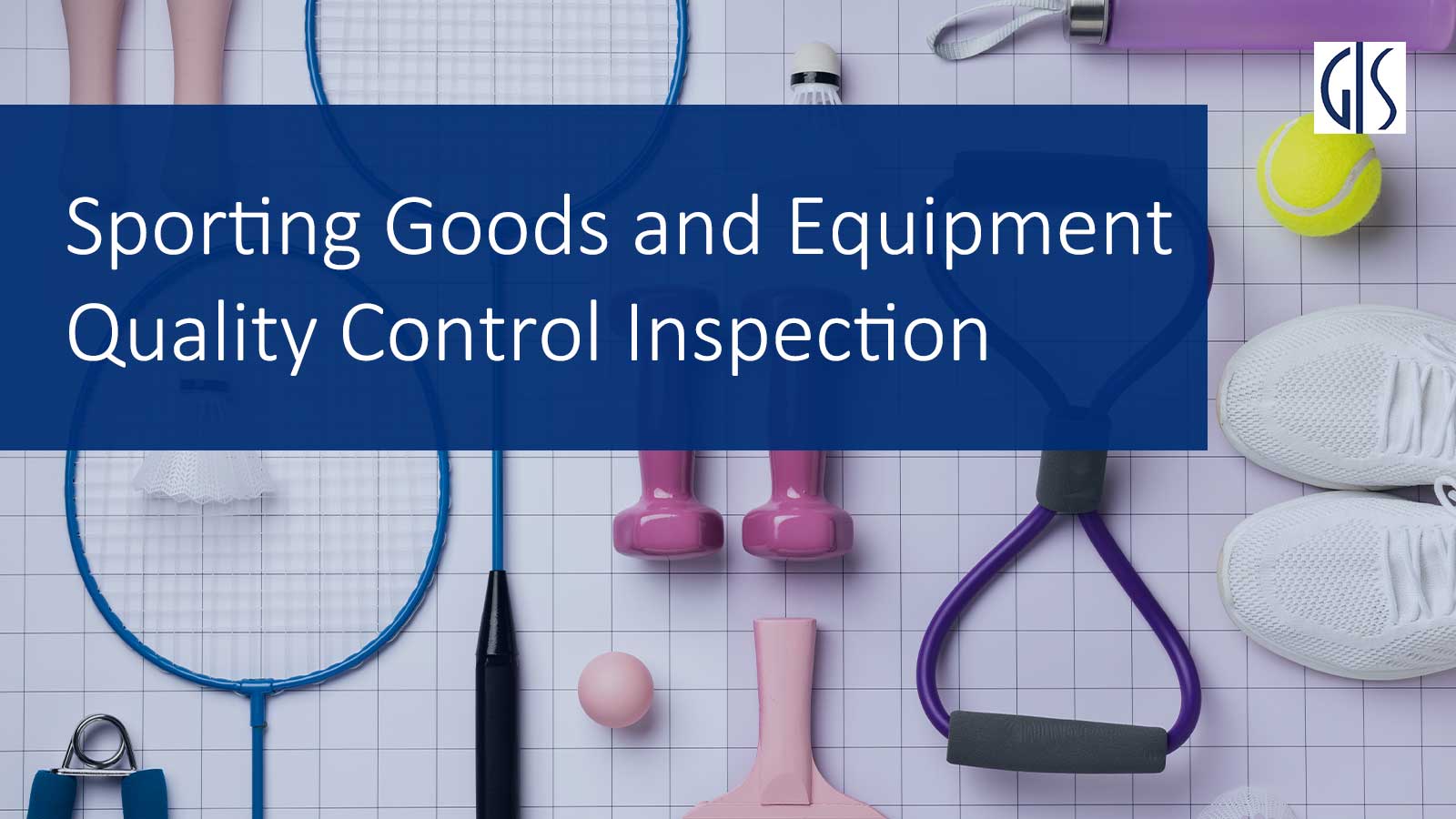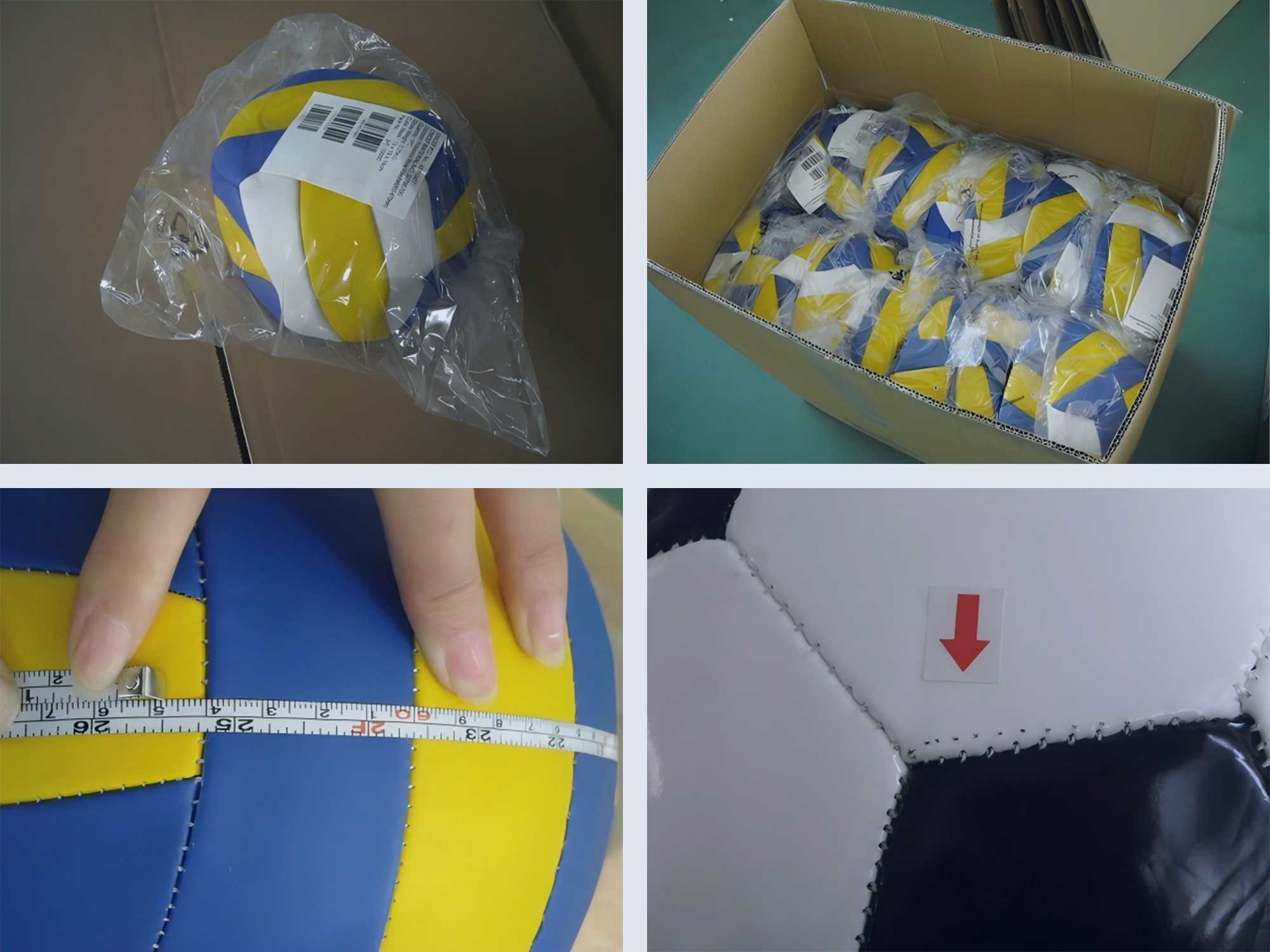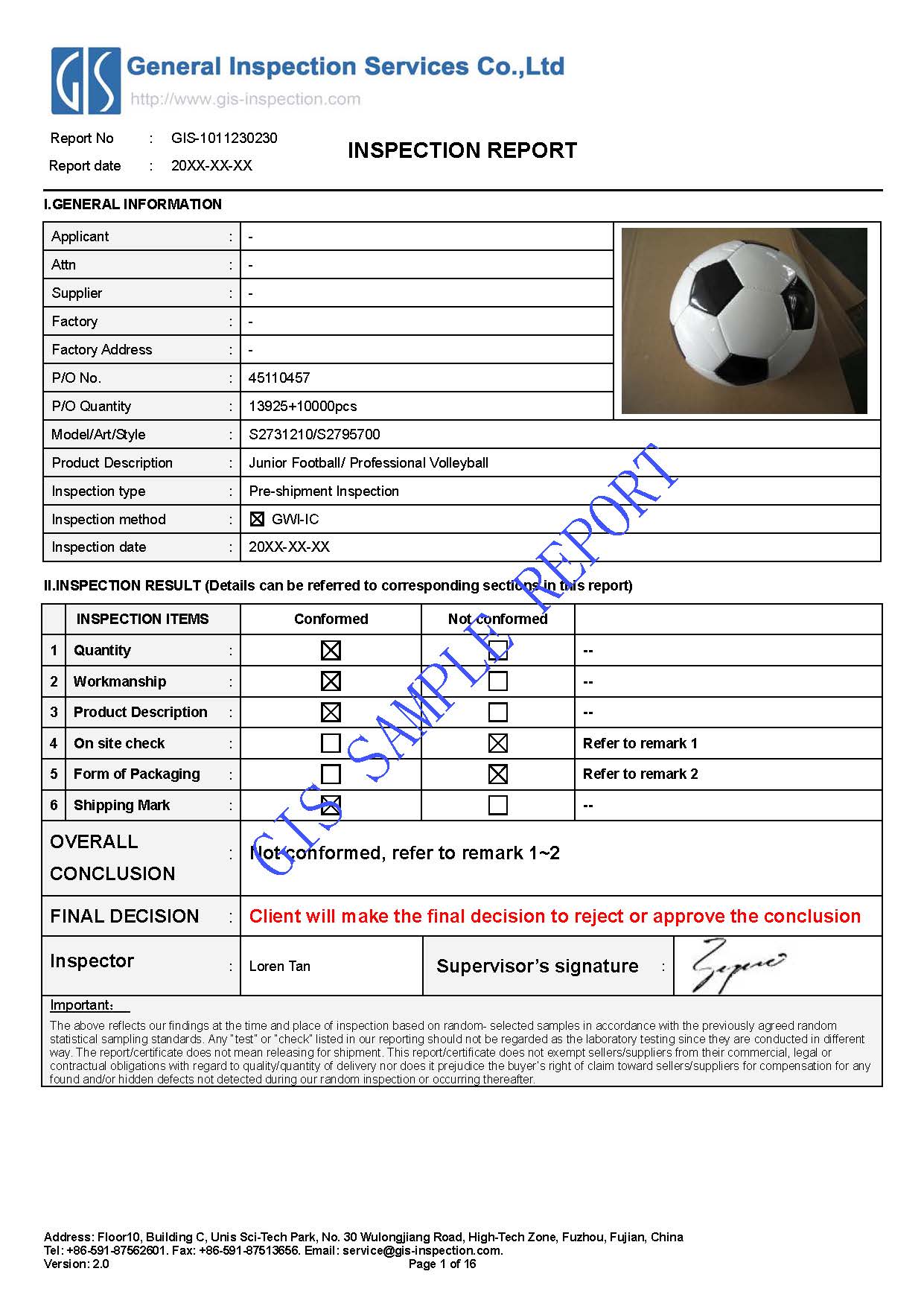Tableware and Kitchenware | Furniture | Household and Home Decoration | Sporting Goods | Toys | Pet Products | Decoration Materials
GIS Inspection is a leading third-party quality control agency that provides quality inspection services to the Sporting Goods and Sports Equipment industry. We have a team of experienced professionals who specialize in third-party factory audits, quality inspections, supplier management and lab testing services.
Ensuring the safety, durability, and performance of sporting goods is essential for protecting end users and maintaining brand reputation. A high-quality inspection method ensures your sports equipment products are checked for against all specifications to ensure that the regulations and requirements are met.
To ensure your sporting goods are reliable, safe and compliant, book an inspection today!
Sporting Goods and Equipment Quality Control Inspection
Quality control of sporting goods and sports equipment is especially important when it comes to safety. Sporting goods are usually highly associated with mechanical assembly, parts.
They are subject to many mechanisms, hence lifecycle and use of parts to each other are important points to consider while performing inspection of sporting goods: material, functionality, testing etc.
GIS offers comprehensive third-party inspection services for a wide range of sports equipment and fitness products, including balls, rackets, protective gear, outdoor gear, and exercise machines.
Whether you're a manufacturer, trading company, or an e-commerce seller, our experienced inspectors ensure that your sporting goods meet industry standards and your customer expectations.
We help reduce returns, complaints, and compliance risks—ensuring that your products perform as intended on the field or in the gym.
Different Types of Sporting Goods and Equipment We Inspect
GIS Inspection’s quality assurance and quality control solutions are designed to improve factory performance and ensure product excellence across a wide range of sports equipment, including:
- Sports equipment: Soccer balls, basketballs, volleyballs, handballs, Tennis balls, baseballs, table tennis balls, cricket balls, Tennis rackets, badminton rackets, squash rackets.
- Fitness equipment: Dumbbells, kettlebells, barbells, Resistance bands, yoga mats, exercise balls, Treadmills, stationary bikes, rowing machines.
- Outdoor & Action Sports Equipment: Skateboards, rollerblades, scooters, Bicycles, helmets, knee/elbow pads, Climbing gear, harnesses, ropes
- Protective gear: Helmets, Shin guards, chest protectors, mouth guards, Wrist straps, elbow and knee pads, Boxing gloves, focus pads.
Our technical expertise and global reach make us a reliable partner for sporting goods manufacturers and retailers worldwide.

Schedule Your Sports Products Inspection Today!
By employing an independent inspection and testing partner like GIS Inspection, quality concerns will be identified and controlled at the very source.
The Importance of Sporting Goods and Equipment Inspection
Sporting goods and fitness equipment are directly related to the safety, performance, and physical well-being of users. From professional athletes to everyday consumers, users trust that the equipment they use is reliable, functional, and free from hazards. This makes quality inspection a critical part of the manufacturing and supply chain process.
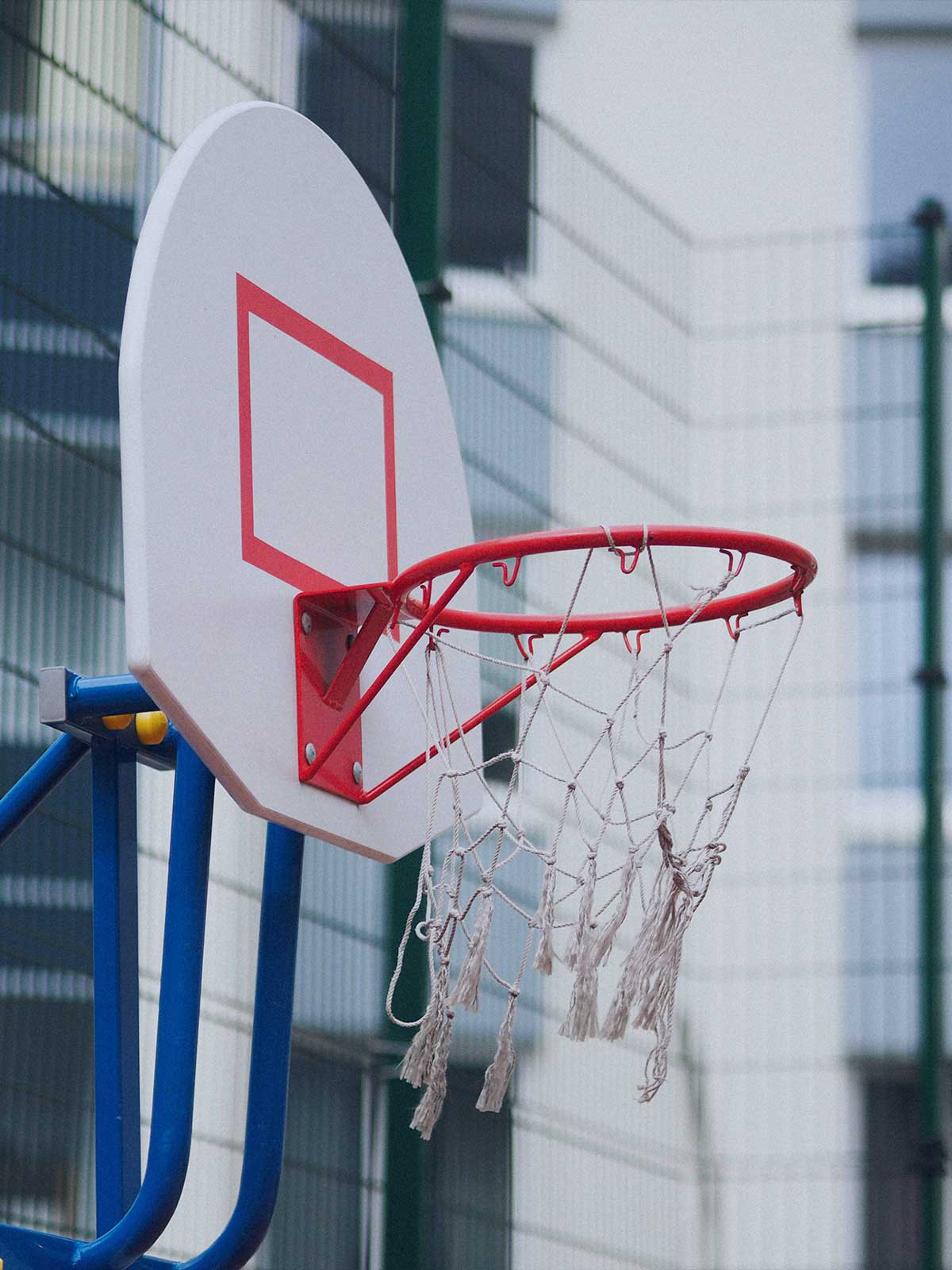 1. Ensuring Safety
1. Ensuring Safety
Many sporting products—such as helmets, protective gear, or fitness machines—must comply with strict safety standards. A defective product can cause serious injuries, legal liability, and damage to brand credibility. Inspections help identify structural weaknesses, material failures, or unsafe designs before products reach the market.
2. Reducing Returns and Complaints
By catching issues before shipment, businesses can avoid customer dissatisfaction, negative reviews, and costly returns. This is especially important in e-commerce, where first impressions and logistics costs matter greatly.
3. Enhanced risk management and brand protection
Many countries and online platforms require sporting goods to comply with local and international regulations. A third-party inspection ensures compliance with these standards and reinforces consumer trust in the brand.
Regulations and Standards for Sporting Goods Quality Control
Sporting goods and equipment must adhere to strict national and international regulations to ensure safety, durability, and performance. Whether sold in domestic markets or exported globally, compliance with relevant standards is essential for brand credibility, legal assurance, and consumer protection.
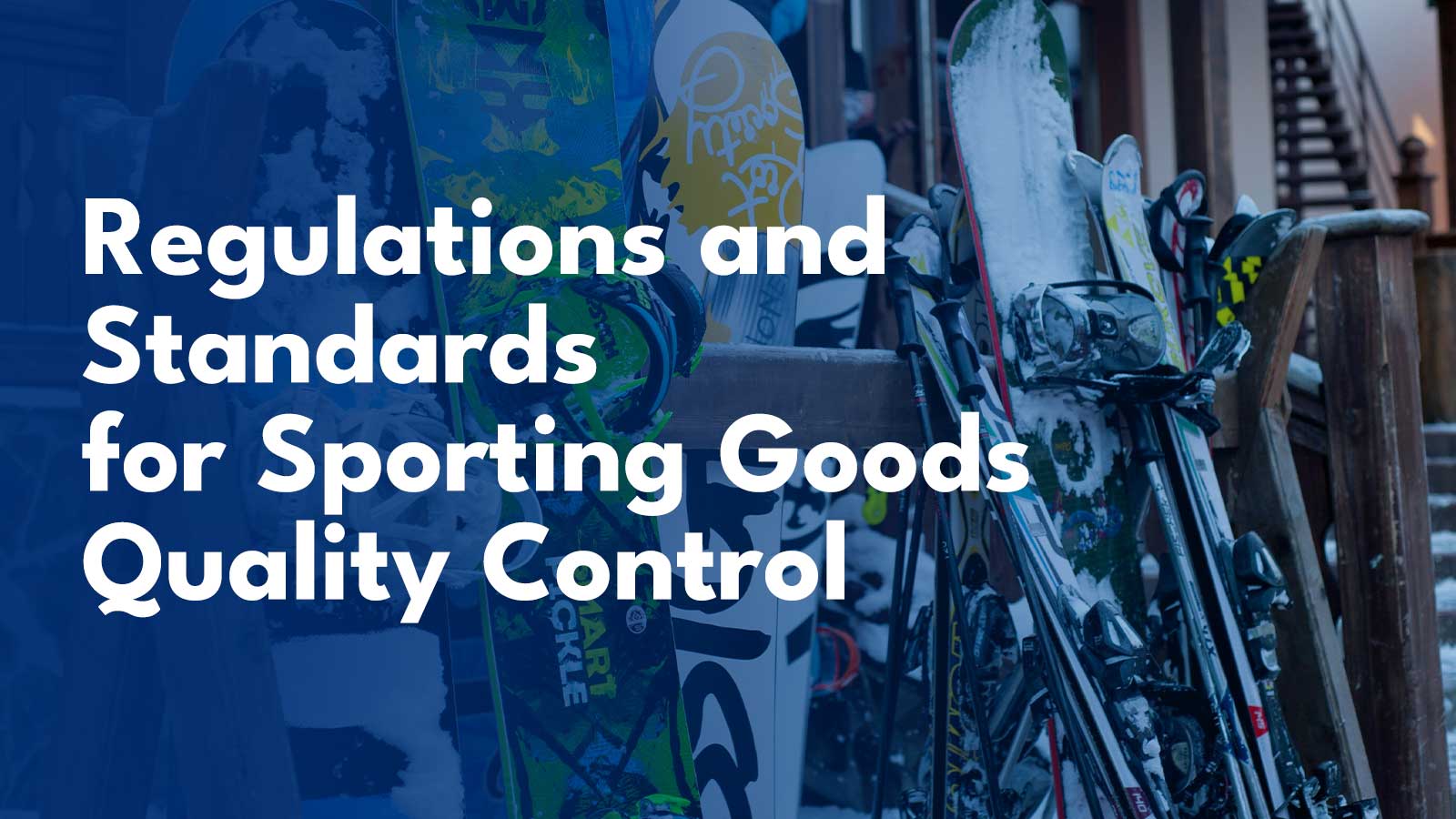
Below are key regulations and standards commonly applied in sporting goods quality control:
ISO Standards for sporting goods
The ISO standard covers compliance requirements for fitness and stationary training equipment, personal protective equipment, helmets, balls and racket sports equipment. These standards are essential references for sporting goods quality control, inspection, and certification.
- ISO 20957- Stationary training equipment
- ISO 21924- Protective equipment for martial arts
- ISO 10256 – Head and face protection for use in ice hockey
- ISO 6220 – Headforms for testing helmets
- ISO 3290-1 – Precision balls – specifications (relevant for manufacturing)
Sporting goods Compliance Requirements in the US
ASTM International’s standards are designed to improve product quality, enhance safety, facilitate market access and trade, and build consumer confidence in the US.
- ASTM F2040 – Helmets for recreational snow sports
- ASTM F803 – Eye protectors for sports use
- ASTM F802 – Fitness equipment safety
- ANSI Z87.1 – Eye protection (used in contact sports and labs)
Sporting goods Regulations and Standards in the EU
- General Product Safety Regulation (GPSR): Applies to all consumer products, including sporting goods not specifically covered by other regulations.
- REACH Regulation: Applies to chemicals and substances used in sporting goods (plastics, rubbers, foams, textiles).
- CE Marking Requirements: Certain types of sporting goods—especially those involving safety or protective functions—must carry CE marking under applicable directives.
Learn more about GPSR: https://www.gis-inspection.com/post/what-is-gpsr-eu-general-product-safety-regulation
Types of Third-party Sporting Goods Quality Control Inspection
Equipment used in sports must adhere to safety standards and meet performance requirements set by various committees, organizations, and governing bodies for the sport.
GIS Inspection’ network of qc provides strong expertise in many different fields, making the General Inspection Service uniquely placed to help manufacturers, importers and brand owners to ensure market compliant products through bespoke quality assurance and control programs.
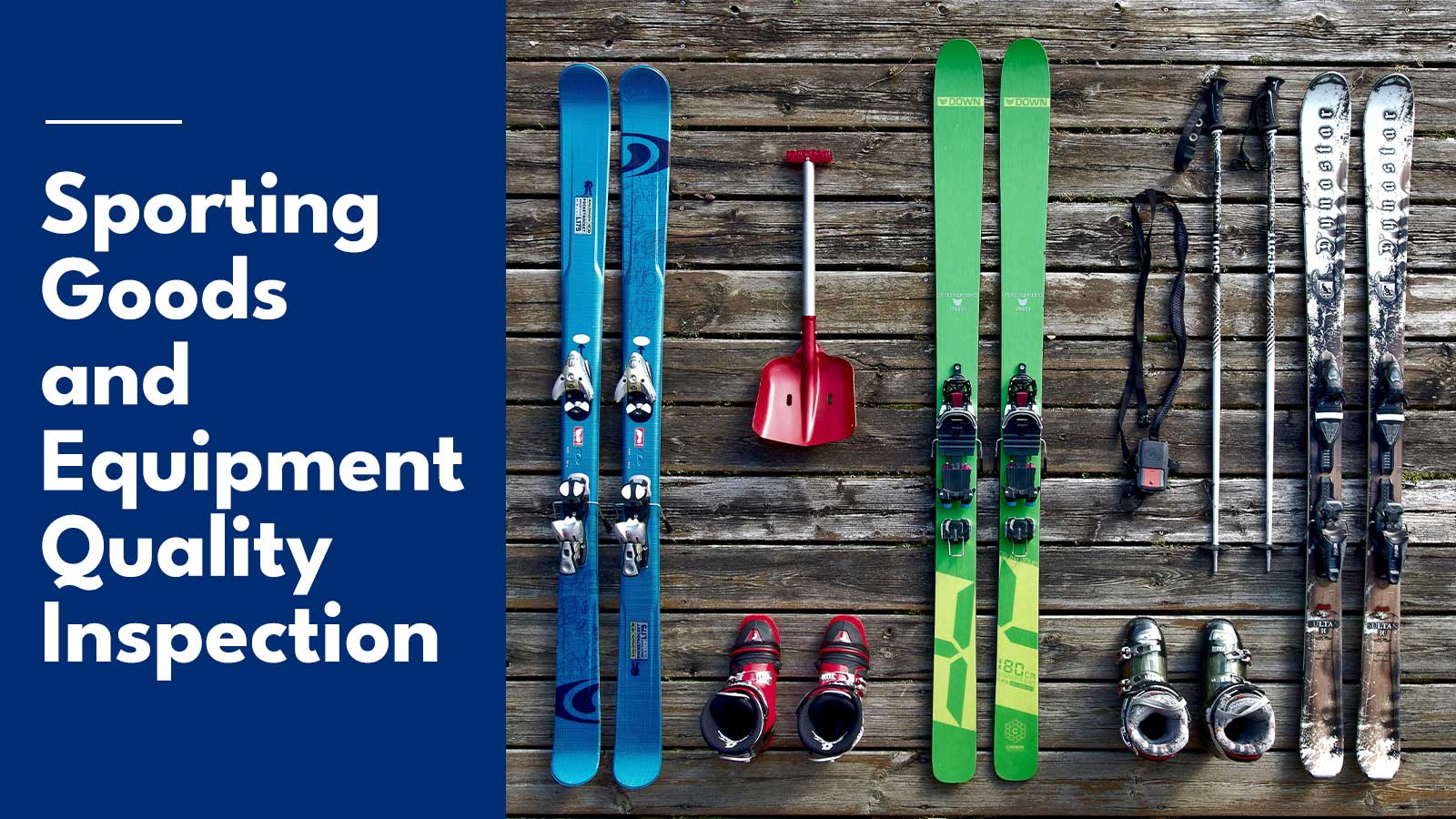
Audits for Sports Equipment Industry
Factory Audit: An independent assessment of the manufacturing facility’s capacity, machinery, and workforce to determine if they can meet production demands while maintaining product quality.
Supplier Audit: Checking the company’s legal information, bank information, human resources, export capabilities, and more. The inspectors perform supplier verification audit, evaluating
Pre-Production Inspection(PPI)
The first stage of the sporting goods inspection process takes place before the actual production begins or the first 10%-30% units produced. During Initial Production Inspection, inspectors work closely with manufacturers to review design specifications, verify material samples, and ensure that the factory has the capabilities to produce the sports equipment to the desired quality standards.
During Production Inspection (DUPRO)
Inspectors closely check the performance of sporting goods to identify any workmanship defects or deviations from the approved design. Inspectors identify and rectify any defects, irregularities, or deviations from quality standards that may arise during production.
If issues are identified, inspectors collaborate with manufacturers to promptly implement corrective actions, preventing the production of substandard sports goods.
Pre-Shipment Inspection(PSI)
The pre-shipment inspection takes place when the merchandise is completed, packed and ready for shipment. Our inspectors pull a random sample of finished sporting goods, based on internationally recognized statistical random sampling techniques.
Pre-shipment inspection covers the quality (product appearance, performance, function, color, size specifications, workmanship), quantity, packaging, labeling and shipping mark.
It helps to identify any defects or non-conformities in the batch, allowing for corrections before the products reach the customer, thereby safeguarding the buyer’s reputation and minimizing the risk of costly returns or complaints.
Loading Supervision (LS)
The final but crucial step in the quality control process is properly preparing batches for shipping to destination markets. Loading Supervision (LS) is usually performed at the factory, forwarders warehouse, or port to verify count, confirm load, and seal the container.
Assessing manufacturing sites before initiating mass production and checking product quality prior to shipment are key parts of the quality control process, and vital to ensure that production is carried out according to the quality standards and expectations of destination markets.
Sporting Goods Pre-shipment Inspection Checklist
At GIS, we specialize in providing third-party inspection services for helmets, headgear, face shields, protective goggles and glasses, padding, shin guards, baseballs and softballs, tennis balls, bowling balls, pucks, bats, racquets, gymnastics equipment, and more at every stage: from supplier evaluation, audit to the quality control, final delivery of shipments during the process and supplier management.
An effective inspection checklist for sports goods is essential to ensure that these products meet quality standards and customer expectations. At GIS Inspection, our pre-shipment inspection checklist covers the following criteria:
- Quantity Verification
- Workmanship Inspection
- Product Description Verification
- Onsite-Test
- Packaging Inspection
1. Quantity Verification
The first step in pre-shipment inspection is the verification of the quantity. By comparing booking and actual quantities, GIS inspectors check products and shipping cartons to verify that total quantity matches the order confirm the total quantity matches the quantity indicated in the purchase order (PO).
2. Workmanship Inspection
If no specific requirement from applicant, the inspector will visually inspect the exterior and interior parts of the sporting goods using inspection sampling plan, General Inspection Level II, AQL 2.5. 4.0.
Our inspector will check for the following aspects, including: scratches, dents, cracks, paint defects, rivets, screws, seams, and stitching.
Learn more about AQL Sampling: https://www.gis-inspection.com/post/how-to-use-aql-for-quality-control-inspection
3. Product Description, Style and Color Verification
In this section, we verify if the style and construction of the sporting goods match the approval sample and the client’s technical file.
- Verifying if the product matches the same style and materials as the approval sample.
- Inspecting if the same materials as the sample have been used which prevents discrepancies in quality, feel, and overall appearance.
- Checking if the actual products match the client’s technical file. It ensures that the final product adheres to the specific design, quality, and material requirements set by the client.
4. On-site Test for Sports goods
The selected sample will undergo rigorous testing to ensure that it functions properly and meets safety standards.
The essential inspection checklists for pre-shipment inspections to manage sports equipment quality:
- Carton drop test
- Carton size and weight measurement
- Product size and weight measurement
- Bar code scan check
- Stability check (for freely standing item)
- Coating adhesive Tape Test
- Smell check
- Gas leakage check (for ball)
- Water absorption check
- Durability tests
- Internal construction review
- Noise level measurement
- Product function/performance test
- Power on check
- Speed check
- Emergency braking system
Check an inspection checklist template: https://www.gis-inspection.com/resource/sample-report
GIS Professional Inspection Services for Sporting Goods and Equipment
GIS Inspection(General Inspection Service) is a leading third-party quality inspection agency in China. GIS provides comprehensive sports equipment quality control designed to protect your supply chain safety.
We offer Pre-Production Inspection(PPI), During Production Inspection (DUPRO) or Full Inspection services, and before delivery inspection to assess home goods and decoration items Pre-shipment Inspection(PPI).
We help sports brands to maintain a strong and competitive reputation, with our comprehensive methods for inspecting exercise equipment, fitness goods, personal protective gear, outdoor field and stream equipment, and other related sport goods accessories.
Our dedicated technical professionals actively participate in the quality assurance industry and have an in-depth understanding of the needs of athletics goods businesses. So, whether our clients need to benchmark bicycles and skateboards, or verify regulatory compliance for tennis rackets, we can provide tailored support.
Contact us for a chat about sporting goods inspection now and see how we can support you with monitoring the quality of your sports items!
